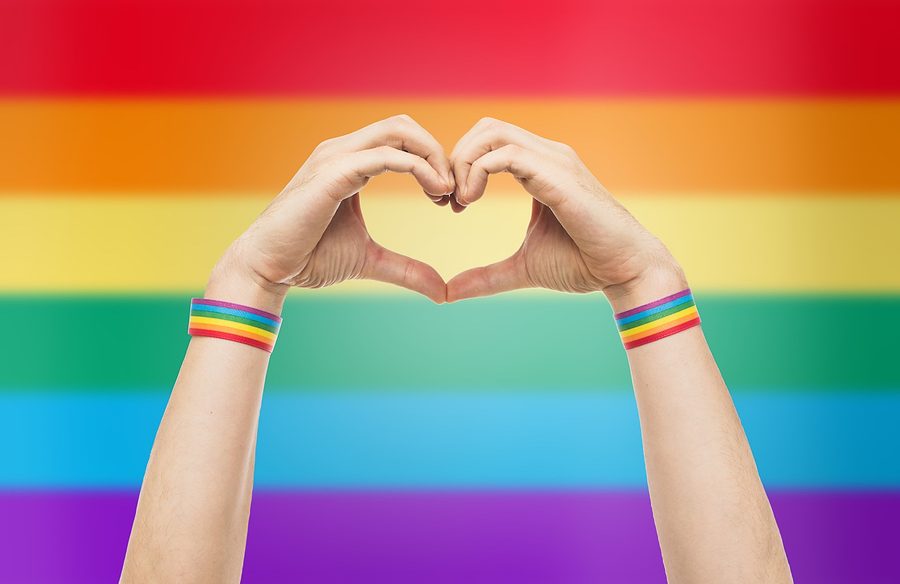Op-Ed: Despite Progress, LGBTQ+ Rights Lag Worldwide
Grace Papas examines LBGTQ+ relationships. Photo purchased from Bigstock.com.
January 16, 2020
No one can deny that the U. S. has made huge strides in accepting people from the LGBTQ+ community. From making same-sex marriage legal to boycotting Chick-Fil-A for donating to homophobic charities, anyone can see that the country is moving in the right direction.
Unfortunately, a lot of countries have some progress to make regarding safety for queer people. There are still many countries where same-sex marriage is illegal or frowned upon.
In fact, until May of last year, gay people were being stoned to death in Brunei. This abusive practice recently ceased in response to uproar, but the fact that this punishment was deemed acceptable for so long says a lot about how some countries view people that are considered “abnormal.”
According to The New York Times, the sultan of Brunei, Hassanal Bolkiah, said Sunday that his country had gone decades without carrying out the death penalty— and that it would continue its de facto moratorium on executions, despite the new punishments codified a month before under a harsh interpretation of Islamic law.
However, the sultan failed to mention other harsh punishments, including the whipping of women convicted of lesbian sex and amputating a hand for theft.
According to the LGBTQ+ Danger Index, the most dangerous place in the world for queer people is Nigeria, where those suspected of homosexuality can face up to 14 years in prison, and even the death penalty. Discussion of LGBTQ rights is also criminalized.
Other dangerous countries include Qatar, Yemen, Saudi Arabia, Tanzania, Iran, and Sudan. Punishments in these countries include whipping, prison time, flogging, and the death penalty.
Of the 150 countries listed by the Danger Index, Sweden is the safest place for homosexuality, with the United States also ranked near the bottom of the list at 127.
Personally, I would have expected the U.S to be even higher on the list regarding safety.
The fact is that people around the world are facing violence, discrimination, and execution because of who they love, how they look, or who they are.
Sexual orientation and gender identity are integral parts of ourselves that should never lead to abuse.
According to Human Rights Watch, between 2018 and 2019 in the United Kingdom, there were around 2,333 hate crimes committed against transgender people and 14,491 against people identifying as homosexual or queer. Apparently, the figures were up across the board, but the number of cases that ended in prosecution also fell. Only one out of five cases were reported to the police.
In October of 2019, an LGBTQ activist, Brian Wasswa, was brutally murdered in his home in Uganda. This event caused the government to reintroduce an anti-homosexuality bill that would authorize the use of the death penalty for consensual same-sex acts.
In Moscow, police in Chechnya carried out a round of beatings against men they merely assumed to be gay or bisexual.
Based off of a mere assumption of sexual orientation, four men were detained for between three and 20 days. They were beaten with sticks and polypropylene pipes. One was raped with a stick. Three of the four were tortured with electric shocks.
The sheer brutality of these crimes is astounding. The fact that some people think that they are justified in perpetrating hate crimes is sickening. No one should have to pay a price for loving who they want to love. No one should die because of their gender identity.
Despite all of this horror, we must have hope. It is not all bad. Last year also brought victories for LGBTQ+ rights.
In March, Polish police protected participants of a pride march amid a group of anti-LGBT protesters, who were attacking the marchers with eggs.
In late October, legislation came into effect that made same-sex marriage legal in Northern Ireland. Same-sex weddings will be permitted to take place starting in February of 2020.
In May, Taiwan also legalized gay marriage, making them the first jurisdiction in Asia to do so and the 26th in the world.
Social norms and expectations are changing. Although some nations are moving in the wrong direction, plenty more are taking steps towards a more tolerant tomorrow.























































